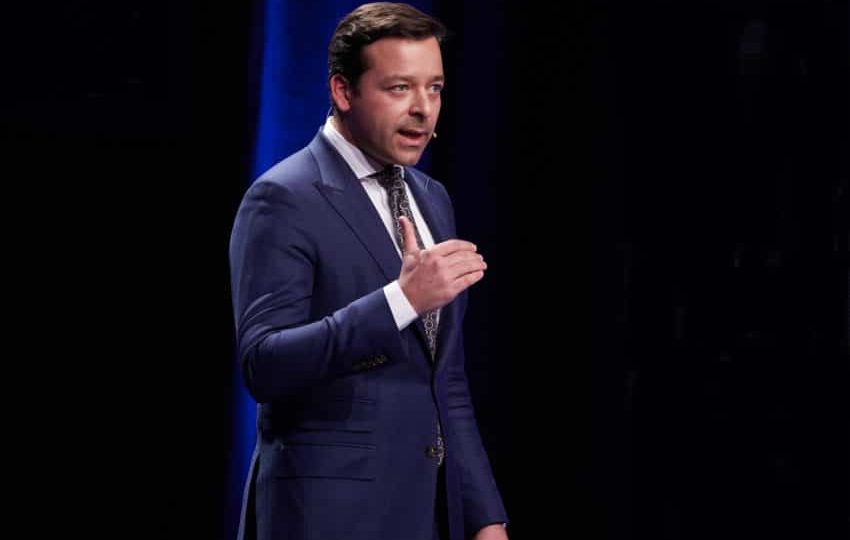
Do you ever wish you could negotiate better? Would you love to get a higher salary, a better budget or a promising hourly rate in important negotiations? Then you should definitely read on! In this magazine article, Prof. Dr. Jack Nasher reveals how you can negotiate better than ever before.
Prof. Dr. Jack Nasher is an author, speaker, and professor of leadership and organization. The expert for Business Psychology knows: "Deeply rooted in us is the idea that the world is fair. We think that our boss, our customer or our client already knows what he has in us. Sometimes we doubt it, but somehow we believe that everyone gets what they deserve. Of course, you don't get what you deserve. You get what you negotiate."
That is unfair - but not necessarily to your disadvantage. Prof. Dr. Jack Nasher: "Being smart means not only accepting the realities of the world, but positively coming to terms with them and using them to your advantage. And here come Negotiation techniques into play." Feel like learning three of the best negotiation techniques? Let's do it!
The first crucial truth is that there is no power in a negotiation. The expert explains: "Power is not something objective. It exists only in the mind and is purely subjective. But the more important a thing, info, or achievement is to you that someone else has, the more power they have over you at that moment."
The source of power - in any interaction - is always you. Even when someone wants to intimidate you significantly, that person is depending on you to be intimidated as well. Prof. Dr. Jack Nasher: "If you don't, or at least don't show it, then the other person has nothing." So remember: all power in a negotiation comes from you!
Many people make the mistake of thinking that the other person has the power. Prof. Dr. Jack Nasher knows: "This is pure illusion. Because of course you only know your Fears and constraints. But you don't know the other person's concerns and fears." So the first step in negotiation is to understand that all power comes from you. The second step is to do everything you can to increase the perception of power.
Compromise can lead to real lose-lose situations in negotiations. Prof. Dr. Jack Nasher is convinced: "In compromise, everyone loses. Because everyone gives up something of what they really wanted. That's the worst thing that can happen in a negotiation. And that's why a win-win situation has nothing to do with compromise."
Another exciting point: usually in negotiations we focus on our position. Instead, we should focus on the why: Why does someone want what they want? Prof. Dr. Jack Nasher: "Focus on interests instead of positions! Don't become rigid about your position and think you'll look weak if you break away from it."
A good negotiator is tough on his interests but soft on his position. Prof. Dr. Jack Nasher knows, "For every interest you have, there are multiple positions. And this is where negotiation is fun, because you explore your interests together. Then you get creative." The most important question here is: What can the other person give you that is cheap to them and valuable to you? As a rule, optimal solutions can be found for both sides in this way.
However, in negotiations you always meet people who categorically reject other positions. People who to everything say no and you just can't get anywhere with them. When someone like that sits in front of you, you have to reach into the bag of tricks. Prof. Dr. Jack Nasher: "I'd like to give you a tactic for that - and that's anchoring."
Here's how it works: The first number on the table when an offer is made influences the thinking, the outcome, and everything in between. Prof. Dr. Jack Nasher: "The rule of thumb for the first offer is therefore: short before outrageous. Very importantly, give a reason why. Eat or die doesn't work. You have to justify your offer."
Even if your reasoning is not the best, there are tricks thanks to which it at least seems as if. One trick, for example, is a crooked number. Dr. Jack Nasher: "Crooked numbers always seem like a reason. They seem calculated and plausible. If you anchor with a crooked number, it's almost like a reason." The number just has to be on the table for now. You don't even have to say you're asking for it. You're setting a baseline, and you're setting the anchor.
Almost every deal ends somewhere in the golden mean. And if you've anchored well beforehand, the golden mean is rigged in your favor. Of course, it also goes without saying that you should never accept the first offer. There is another simple trick, which is: never put on a poker face. Instead, flinch at the other person's proposal or offer.
Dr. Jack Nasher: "The flinch is the physical flinch. You show the other person a clear no. Immediately after the flinch comes the counter anchor. But you must not repeat the number of the other person. Get rid of his number. Talk about your number! Explain why it's plausible." It's really quite simple, isn't it? Now it's your turn to use the tricks of business psychology... Dr. Jack Nasher and negotiate like a true professional!

